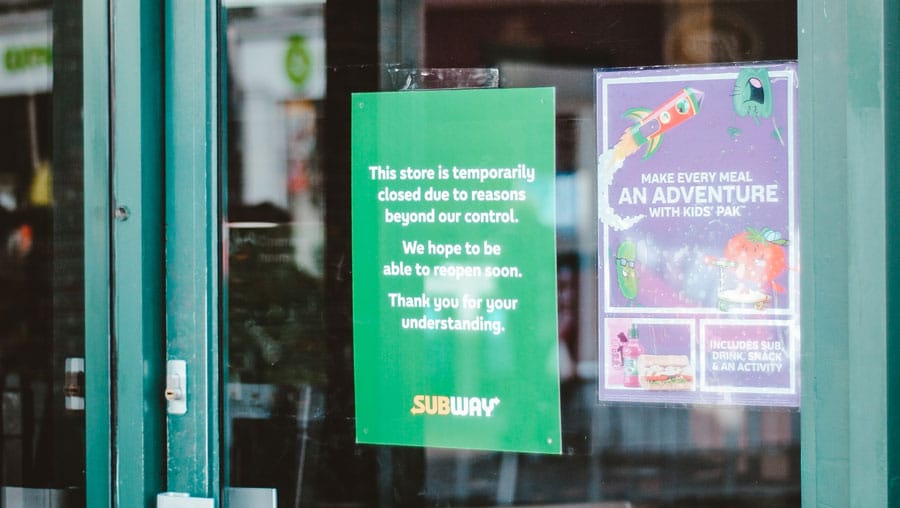Commercial Business Lease Rent Payments, Enforcement and COVID-19

It is not surprising, that many Tenants will be reaching out to their Landlords for a good faith arrangement whereby rent is either temporarily reduced or suspended to tide them over during this uncertain time.
A Landlord is not obliged to accept or even consider such a proposal by a Tenant (unless perhaps it ties in with an upcoming rent review – in which case you would need to look to the rent review provisions in the Lease) but the Landlord should at least consider the Tenant’s proposal.
Coming to an arrangement with the Tenant now to defer payment of the rent will foster good relations with the Tenant and could potentially give the Tenant the breathing space it needs to still be solvent come the time the Tenant is in the position to once again trade from the premises and, ultimately, repay the arrears to the Landlord and meet its obligations under the Lease for the remainder of the term. This is likely to be preferable to the Tenant ultimately becoming insolvent and the Landlord being left with an empty premises during a time when the property market is under strain.
However, the Landlord may not have much choice in the matter if they have linked obligations to mortgagees, utility companies and other creditors. The Landlord may therefore wish to consult with such third parties first, before coming to an arrangement with the Tenant.
The Coronavirus Act came into force on 25 March 2020. Accordingly from 26 March 2020, rights of re-entry and forfeiture for business tenancies* for non-payment of sums due under a lease cannot be enforced by action or otherwise up to and including 30 June 2020 (with the possibility of this period being extended further).
* tenancies that Part II of Landlord and Tenant Act 1954 applies to (or would have applied to had it not been contracted out)
What does the moratorium on enforcement by re-entry and forfeiture mean for Landlords and Tenants?
- Whilst the Landlord cannot take steps to forfeit the lease for non-payment of sums due, other remedies the Landlord has for non-payment may still apply. For example, the Landlord can still sue the Tenant for the unpaid sums, exercise Commercial Rent Arrears Recover (CRAR) and pursue any guarantor or indemnifier (subject to serving notice within the requisite timeframe)
- it does not automatically waive the Landlord’s right to pursue these sums by re-entry and forfeiture once the moratorium is lifted (unless the Landlord expressly waives their right to do so)
- the Tenant has breathing space to figure out their financial affairs without worrying they will lose their premises in the meantime
- the Landlord can still consider re-entry and forfeiture action for other breaches of the Lease unrelated to the non-payment of sums due such as for disrepair or an unlawful assignment. Some leases of retail premises include covenants positively requiring the Tenant to keep the premises open and trading. As a result of the “stay at home” requirements, many commercial tenants will be in breach of such a covenant (despite this potentially conflicting with other covenants in the Lease – see further below). Whilst the Landlord could technically take steps to forfeit the lease in respect of this breach, it is assumed the courts will take a very dim view of this so it is unlikely a landlord will be advised to take such steps in practice
- Tenants should comply where possible with their other obligations in the Lease for example, if the Government requires their premises to be closed, then they will need to do so under any “compliance with all laws” clause in their lease
- the Landlord can drawdown funds on a rent deposit – the drawdown of funds usually triggers the requirement for the Tenant to top-up the rent deposit but the Landlord may agree repayment can be delayed
Written by, Annie Webb, Solicitor at Bennett Griffin LLP
Other articles in this series:
- Does your commercial contract contain a Force Majeure clause?
- Buildings Insurance, Lease Covenants
- Delays to Commercial Property Transactions
- “Exit” options in existing Leases
Please note that this update is not intended to be exhaustive or be a substitute for legal advice. The application of the law in this area will often depend upon the specific facts and you are advised to seek specific advice on any given scenario.
If you are a Landlord or Tenant who is unsure what their Lease requires the other party to do or not do and the implications of COVID-19 and/or the Coronavirus Act on such obligations, please get in contact with us to discuss further – Simply call the team on 01903 229999, visit the team page to speak to the relevant department or complete the form below.
